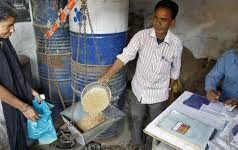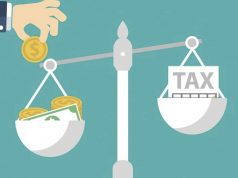In our society today, Universal Basic Income (UBI) has been talked about as if it were an epitome of social welfare, for quite some time now. UBI’s two main features – unconditionality and universality – are what distinguish it from traditional welfare schemes. It is a system that guarantees an unconditional regular income to all legal residents in a country. It is not contingent on the recipient’s status of employment, level of income, or size of family. It ensures a basic minimum lifestyle for all, reduces poverty, and provides economic security in a world moving towards automation. Its unconditionality has the potential to eliminate exclusion of anyone who is vulnerable.
Indian proponents of UBI believe that it can address the shortcomings of the current welfare system that operates on rationing, which has several leaks and is rife with corruption. The current system is also ineffective at targeting recipients. Many states use a bottom up transfer model, in which high-powered federal and state governments give subsidies to low-powered local officials in order to support welfare program implementation. This approach is vulnerable to fraud as pointed out by many economists.
From the recipient’s view, to receive benefits various state regulations that limit subsidies have to be circumvented. Individuals must also have a ration card, which is tough to obtain. They are sometimes sold in illicit markets, and in many instances recipients have to pay bribes to government officers to obtain one. There is a lot of discretion available to the government machinery in deciding who can obtain a ration card. Dalits and members of tribal communities, for example, are found to be discriminated against in the traditional public distribution system.
UBI has the potential to decrease corruption and, more importantly, guarantee that payments are received by the intended recipients. It also eliminates intermediaries who hold power in the current system.
India’s Economic Survey in 2016–17, recognised that UBI has the potential to free people from what Nobel prize winning economist Friedrich Hayek described as “paternal and clientele ties with the government”. Individuals who receive unconditional cash transfers are free to choose how much money to allocate depending on their needs. This feature can lead to improvement in health, nutrition, and educational outcomes.
Universal basic income can also streamline India’s complex welfare system. There are 950 central and state-level schemes, at present. This is an unimaginably complicated system that has multiple overlaps and high efforts arising from duplications. Combining them into one universal cash distribution will eliminate the need for beneficiaries to go from one place to another and can save enormous administrative expenses, at the same time.
Finally, implementing UBI is crucial for India’s objective of financial inclusion. To receive UBI payments recipients can be required to have bank accounts through direct transfers. Such a transfer has the potential to bring tens of millions of unbanked Indians into the formal system of finance, starting a virtuous cycle of savings, credit availability, and economic involvement.
One may doubt if universal basic income can be successful in India. Many argue that the cost will be staggering. Even a modest UBI can cost up to 4.9 percent of India’s GDP, causing significant levels of fiscal stress. It requires that taxes be raised, spending cut, or an increase in borrowing, all of which have significant negative effects on the economy. How to make it feasible is a significant concern, given India’s poor record in providing public services in a cost-effective manner.
Critics also focus on the possibility of harmful behavioural consequences, notable among them is less effort put at work and a culture of dependency. Universality in a country as large as India is a challenge too. There are also potential risks that UBI rollout can shrink the provision of essential public services like healthcare and education.
However, the results from the UBI pilot in the central Indian state of Madhya Pradesh operational from 2011 to 2013 show promise in addressing these concerns. This trial was the largest cash-transfer programme ever undertaken in India. Its encouraging results show improvements in nutrition, health, education, and economic activity for 6,000 persons across eight villages. It even led to an increase in labour and work, both within and outside of the agricultural sector. To be sure, policymakers can consider running more such broad-based, multi-locus pilots to monitor the impact of UBI on any other specific socio-economic outcome of concern.
If concerns on UBI disincentivizing work continue, skill-building vocational training programs can be rolled out alongside UBI to motivate and plug gaps in seeking employment.
It’s als important that robust and responsive monitoring and evaluation machinery should be put in place to monitor the impact of UBI on many important outcomes. Taking care of extensive stakeholder engagement before implementation of schemes and pilots, will also matter.
Some implementation concerns can also be addressed through a phased rollout, targeting initially, specific geographies or budget expenditures. India already has a strong digital infrastructure which can be used to ensure efficient delivery.
Overall, a funding mechanism that is sustainable and fiscally prudent will matter the most on the future of universal basic income in India. On other counts it fares well. The UBI pathway is ripe, it just needs political will and action, now.
Post Disclaimer
The opinions expressed in this essay are those of the authors. They do not purport to reflect the opinions or views of CCS.




